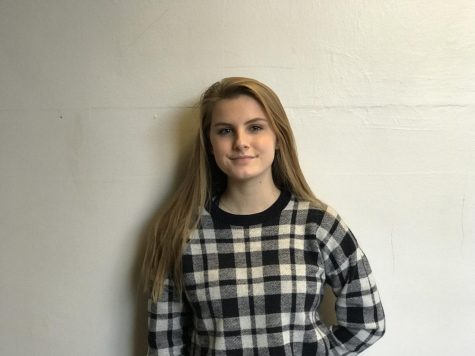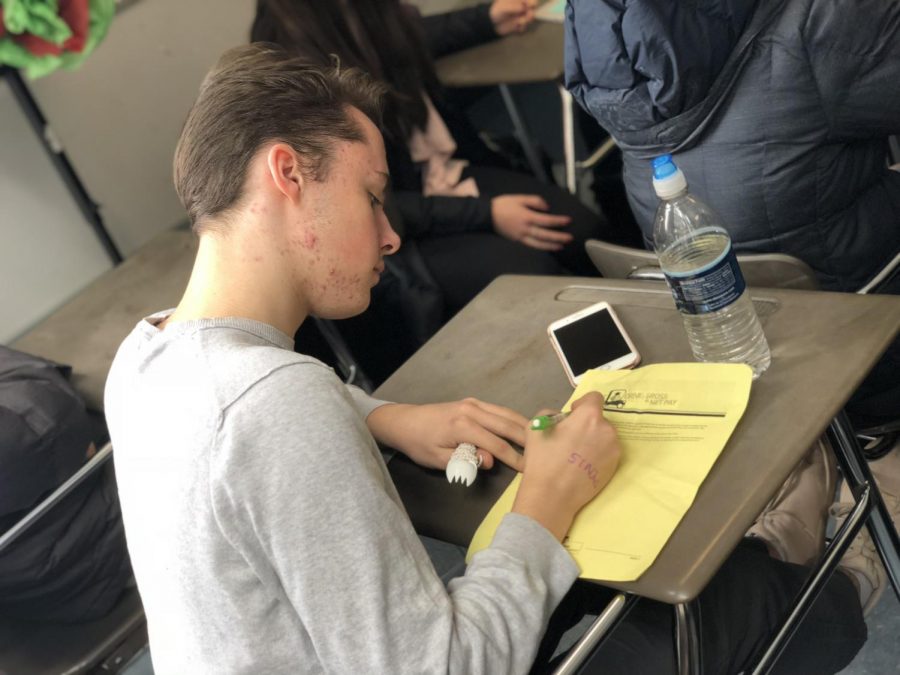Dr. Brian Zikmund-Fisher Visits CHS
On Feb. 8, 2018, Dr. Brian Zikmund-Fisher visited Robbie’s Stapleton’s Prevention Theatre/Advanced Health class. Prior to his speech, the students watched the documentary “vaccines – calling the shots” and read three articles written by Zikmund-Fisher. These articles provided reasons as to why people should not be concerned about eating raw cookie dough, previewed Zikmund-Fisher’s speech, and allowed them to think of questions to ask him.
Wearing photochromic lenses for his glasses, he made a joke about wearing sunglasses inside. He then went on to describe how he became interested in health decision-making. Zikmund-Fisher’s interest in public health began after medical complications led him to high-stakes decisions regarding his own health. At 15 years old, a blood test revealed Zikmund-Fisher’s low platelet count, and at 28 he was diagnosed with Milodispatric disease. His doctors gave him no more than 10 years if he left the disease untreated, and with a pregnant wife, Zikmund-Fisher decided to attempt a full bone marrow transplant. He had a 25 percent chance of death within 6 months of the procedure, but the operation was successful. After a year and a half of recovery, Zikmund-Fisher was revaccinated for everything.
Zikmund-Fisher began his educational journey by receiving a B.A. in economics from Swarthmore College in 1991, an M.A. in decision making and economics from Carnegie Mellon in 1997, and a Ph.D. in behavioral decision making from Carnegie Mellon in 2002. He is now a professor at the University of Michigan and teaches “Designing Sticky Communications for Health Advocacy, Education, and Mass Media” and “Risk Communication: Theory, Techniques, and Applications in Health,” as well as working on research teams.
The idea of acknowledging reality is what motivates Zikmund-Fisher’s work now. “We can’t escape it. We’re all gonna die. We’re all gonna have diseases,” he said, but Zikmund-Fisher wants to make it easier for people. Right now, he’s working on designing an easy way to provide patients with blood test results. He wants the average person to be able to look at their graphed results and instantly derive the meaning of it. Other projects he has been a part of include experimental research, cancer survivorship, cancer screening decisions, graphical methods for communicating risk and other quantitative data, and more.
After discussing his background, he tackles the controversy of vaccines. He is aware that vaccines can harm people, but so can anything else.
“The riskiest part about getting a vaccine is driving to wherever you’re going to get it,” Zikmund-Fisher said.
A large issue with the fight against vaccines today is that many who oppose vaccines have not seen the diseases that the vaccines protect against infecting someone. Zikmund-Fisher addressed that many people in his parent’s generation did not think twice about vaccination because they had seen and were affected by the diseases that vaccines were promising to reduce.
He continued talking and touching many different topics and the students asked questions when they felt was necessary.
“[My favorite part] was when he was talking about risk factor,” said Brennan Eicher, a senior in Stapleton’s class. “I think that really resonated because he was talking about how every day, every choice, could potentially be a risk.”
The next presentation in the Prevention Theatre/Advanced Health class is Feb. 20, 2018, by Sexperteam from The University of Michigan.










